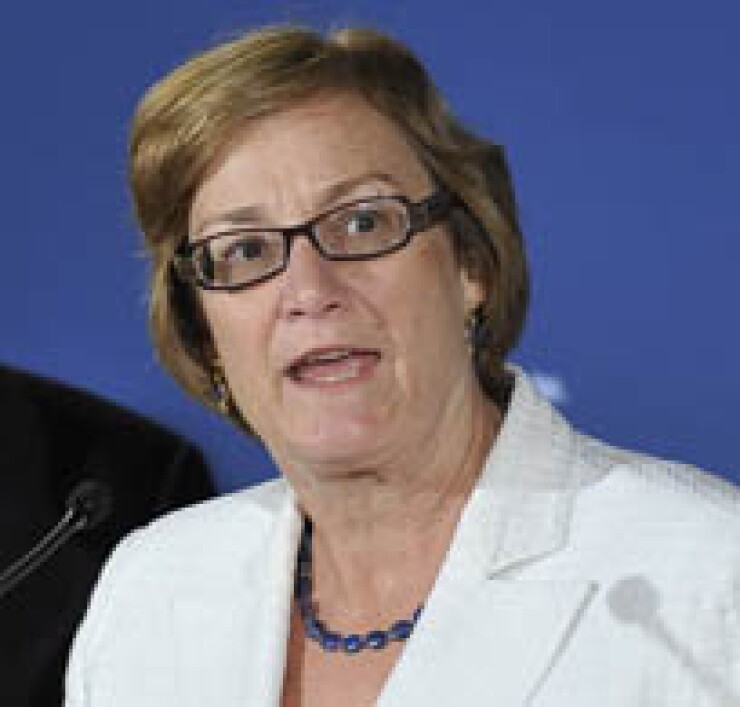
Since March 2011, Carol Galante has served as the Federal Housing Administration commissioner, where she has strived to recapitalize the agency's mortgage insurance fund and revamp its reverse mortgage program.
In a March 25 interview, the FHA commissioner discussed recent market trends and the issues relating to
Q: We are seeing lenders lowering their minimum credit score requirements for FHA borrowers. Are you encouraged by this trend?
A: Yes. We think one of the major issues in the market right now is that lenders have not been lending to the FHA’s full credit spectrum.
A recent Urban Institute study shows that 13 million people have credit scores between 580 and 680. There is a big swath of potential borrowers that are not being served. We think it is a good thing that lenders are taking a more serious look at this population.
Q: Is the FHA still planning to adjust its automated underwriting system [Total Scorecard] in April to encourage lenders to the use manual underwriting more often?
A: We think Total Scorecard as an underwriting system is great for most borrowers. We just want to be sure that those who are being referred to manual underwriting are getting the full treatment they need.
Previously, borrowers were referred to manual underwriting, but the lender was not given a lot of detailed guidance about what to look for in terms of reserves and compensating factors to get that borrower approved. Now lenders will have more detailed guidance to follow.
Q: One trade group is urging FHA to lower its annual premium while boosting its upfront fee. They contend the 1.35% annual fee pushes up the [debt-to-income] ratio—making it harder for borrowers to qualify for a FHA loan. Is FHA considering any changes to its premium structure?
A: I would say there are two issues—access to credit and affordability.
Lending to the full credit spectrum is in my mind the biggest problem. There are a lot of people who qualify in that credit spectrum and we need to be serving those borrowers.
Affordability is also an issue. But our view is that right now we have to be doing things that expand access to credit but also continue to protect the FHA fund.
The mortgage insurance premiums we put into place were very important in terms of pricing our risk appropriately and ensuring we are protecting the fund as well as providing access.
Q: FHA purchase mortgage endorsements have been trending down. Do you expect to see a pickup in FHA loan volume going forward?
A: Our purchase volume has gone down with the rest of the market. It is actually quite stable in terms of our market share. I really think this is [more] a broader market issue than a FHA issue.





